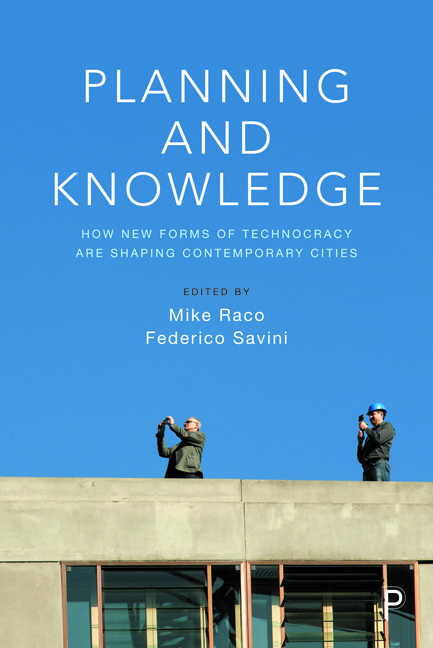Book contents
- Frontmatter
- Contents
- List of figures
- List of tables
- Notes on contributors
- Part I Conceptual framings of technocracy
- Part II Public planning and bureaucracies in contemporary urban development politics
- Part III Corporate knowledge and the land and property development sector
- Part IV Private consultants and the delivery of public policy
- Part V New constellations of actors and the management and governance of contemporary cities
- References
- Index
16 - Planning by numbers: affordable housing andviability in England
Published online by Cambridge University Press: 30 April 2022
- Frontmatter
- Contents
- List of figures
- List of tables
- Notes on contributors
- Part I Conceptual framings of technocracy
- Part II Public planning and bureaucracies in contemporary urban development politics
- Part III Corporate knowledge and the land and property development sector
- Part IV Private consultants and the delivery of public policy
- Part V New constellations of actors and the management and governance of contemporary cities
- References
- Index
Summary
Few modern planning practices illustrate the growingquantitative technocracy in the English planningsystem as clearly as viability assessments foraffordable housing. The numerical hegemony incalculating for planning gain in general, andaffordable housing in particular, is changing thenature of the decision being made. No longer doquestions about the site, the planning context andthe overall viability of the project prevail,instead, there is a singular calculation of whetherthere is sufficient profit in the development ornot. This is the decision-making lens of thedeveloper, using numbers that are neither neutralnor objective. In housebuilding as elsewhere,concerns about the apparently apolitical characterof technocratic modes of thought and action haveemerged as critical social questions.
In February 2017, an agreement was reached between theLabour run London Borough of Haringey and Far EastConsortium International (FEC), a Hong Kong baseddeveloper, for the redevelopment of Hornsey TownHall in Haringey, North London. The redevelopment isto restore the building and create a new artscentre, with community access and café/ restaurantsas well as improvements to the Town Hall Square withcontinued public use. To pay for this, theredevelopment is to include a boutique hotel(aparthotels) and luxury flats yet the redevelopmentof Hornsey Town Hall was not, initially, to includeany social or affordable housing as part of theproposed 146 home development. This was despite theLondon Borough of Haringey having a planning policythat targets 40 per cent affordable housing in newdevelopments (which would give at least 59 newaffordable homes) (Haringey, 2017b). Following therelease of the viability statement, and itsunredacting by campaigners thanks to faulty documentproduction, three councillors wrote an open letterto FEC (including the Chair of the Planning SubCommittee) stating that they ‘think it would becompletely unacceptable for the development not tohave any affordable housing and will not support theapplication unless this is addressed’ (Crouch EndLabour Party, 2017). Negotiations are on-going atthe time of writing (late 2017) and it seems that alittle affordable housing – perhaps 11 apartments –will be provided through the scheme (Haringey LBC,2017b).
- Type
- Chapter
- Information
- Planning and KnowledgeHow New Forms of Technocracy Are Shaping Contemporary Cities, pp. 213 - 224Publisher: Bristol University PressPrint publication year: 2019

